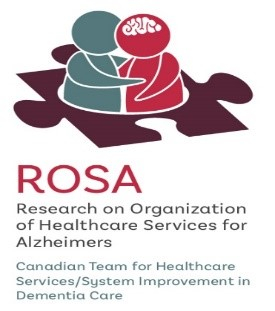Announcing the Second Phase of Funding for the Canadian Consortium on Neurogeneration in Aging (CCNA)

The Government of Canada announced the next phase of funding for the Canadian Consortium on Neurodegeneration in Aging (CCNA). From 2019 to 2024, CCNA will receive $46 million from the Canadian Institutes of Health Research (CIHR) and 11 other partner organizations, including the Alzheimer Society of Canada (ASC), and the Fonds de recherche du Québec – Santé (FRQS).
Established in 2014—based on a partnership between the CIHR, the ASC, and 12 other public and private funding bodies — CCNA is the largest initiative in dementia research ever undertaken in Canada. In its second phase of funding, CCNA will bring together over 310 researchers from 39 universities in eight provinces across Canada, and these researchers will continue to foster collaborations with other international studies on dementia.
CCNA’s mission is to foster research collaborations across disciplines and universities on cognitive decline and dementia which impact over 400,000 Canadians today, and will impact as many as 1.5 million Canadians by 2031.
To accelerate and synergize research nationwide, CCNA researchers work under three research themes (Prevention, Treatment, and Quality of Life) within nineteen research teams, exploring a range of topics. In Phase II, the researchers will also benefit from programs that will build their capacity in engaging people living with dementia in research; exploring Indigenous research topics and healthcare issues; and conducting research on special topics related to women, gender, sex, and dementia.
The research team of ROSA (Research on Organization of Healthcare Services for Alzheimer's) led by Drs. Howard Bergman and Isabelle Vedel co-lead the team to investigate how to provide innovative care for persons living with dementia. The other members of the team are Susan Bronskill, Tibor Schuster, Pamela Jarrett, Yves Couturier, Carrie McAiney, Edeltraut Kroger, Éric Pelletier, Machelle Wilchensky, Erin Strumpf, Caroline Sirois, Amélie Quesnel-Vallée, Christian Bocti, Dominique Gagnon, Vladimir Khanassov, Sharon Kaasalainen, Jennifer Ingram, Paula Rochon, Shelley Doucet, Sandra Magalhaes, Judy Baird, Bryn Robinson, Heather Bursey, Pierre Pluye Jean-François Éthier, Louis Rochette, Dallas Seitz, Linda Lee, Alison Luke, Rachel McKay, Geneviève Arsenault-Lapierre, Claire Godard-Sebillotte and Nadia Sourial and are from IC/ES, McGill University, Dalhousie University, Université de Sherbrooke, Waterloo University, Université Laval, l'Institut national de santé publique du Québec, l'Institut national d’excellence en santé et services sociaux, Université du Québec en Abitibi-Témiscamingue, McMaster University, PARS3 - Unité de soutien de la Stratégie de recherche axée sur le patient (SRAP) du Québec, Trent University, University of Toronto, University of New Brunswick, Maritimes SPOR support unit, the government of New Brunswick and Queen's University.